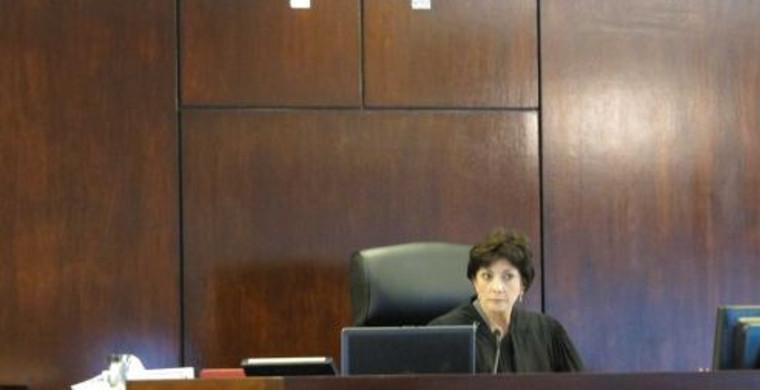ST. GEORGE, S.C.: South Carolina Episcopalians take fight to court
By Jeffrey Collins & Emery P. Dalesio
ASSOCIATED PRESS
http://news.yahoo.com/s
July 8, 2014
About 50 conservative Episcopal churches in South Carolina are in court this week, trying to keep their name, seal and $500 million in land and buildings after they broke away from the national denomination in a wide-ranging theological dispute.
The breakaway group, the Diocese of South Carolina, said it had to leave the national church not just because of the ordination of gays, but a series of decisions it says show national Episcopalians have lost their way in the teachings of Jesus and salvation.
The national church argues the split wasn't properly made, and it is fighting for the 20 or so churches in South Carolina staying under its umbrella.
Property disputes in the Episcopal Church and other Protestant churches have been going on for decades and end with varying results.
In March, the U.S. Supreme Court decided not to intervene in a dispute between the Episcopal Church and a conservative northern Virginia congregation that left the denomination in a rift over homosexuality and other issues. The court left in place a judge's decision siding with the national church, ending a seven-year fight over a church that traces its roots back to George Washington.
In Seattle on Monday, the Episcopal Diocese of Olympia and two Anglican churches that left in 2004 reached a settlement that made it possible for all parties to continue with their ministries. A ruling by the Texas Supreme Court siding with dozens of dissident congregations in the Fort Worth area was appealed last month to the nation's highest court.
In South Carolina, some of the church property in dispute dates to before the Revolutionary War, and it's located in prime real estate areas in Charleston and other coastal towns.
"At no point in our history has the national church contributed financially to the building or maintenance of any of our church buildings, facilities, or ministries," said the Rev. Ken Weldon, rector of St. John's Church in Florence.
The trial started Tuesday and is expected to last two weeks, focusing on the less holy issue of corporate law. On the first day, men in priest collars mingled with a number of lawyers in bow ties. Circuit Judge Diane Goodstein is hearing the case at the Dorchester County Courthouse along the coast. It's not clear when she may rule.
The first witness was a lawyer for the breakaway churches. He was questioned about the steps the Diocese of South Carolina took to split. Lawyers got him to point out salaries for church officials were paid for without help from the national church.
On cross examination, an attorney emphasized that breakaway church officials didn't start to act like a corporation until they wanted legal protection.
Before the split, the diocese in eastern South Carolina had 70 congregations with about 29,000 parishioners. It dates to the 1700s and is one of the originals that joined others to form the Episcopal Church.
The Episcopal Church, along with other Protestant denominations, had been losing members for decades before gay rights came dramatically to the forefront when Episcopalians elected their first openly gay bishop in 2003.
Perhaps furthering the fracture, the South Carolina churches that remained with the national Episcopalians announced Tuesday they had granted priests permission to bless the committed relationships of same-sex couples. The blessings aren't a marriage, since South Carolina law still bans gay marriage. The blessings also aren't required if an individual church or priest doesn't want to do it.
The secession by South Carolina Episcopalians is ironic, said Frank Kirkpatrick, a professor of religion at Trinity College in Hartford, Connecticut, and author of "The Episcopal Church in Crisis: How Sex, the Bible and Authority are Dividing the Faithful." While church leaders 150 years ago defended slavery on Biblical grounds, some of those breaking away from the national church body over homosexuality and marriage prefer to accept the authority of conservative African bishops rather than U.S. bishops who support the ordination of gays, he said.
"The arguments you hear about seceding from the Episcopal Church sound remarkably similar to the arguments you heard in 1860-61 from the secessionists in South Carolina who wanted to split away from the Union," Kirkpatrick said.
END














